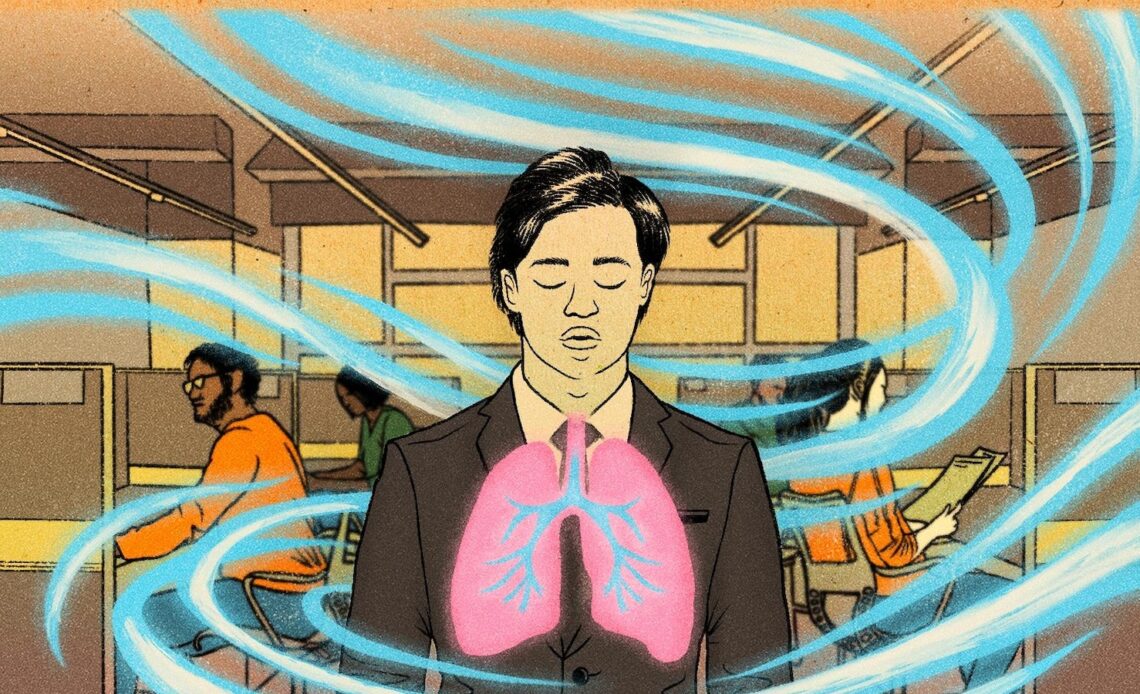NEW YORK — A simple, uncommon ritual starts each staff meeting at Myosin Marketing. When everyone is gathered on Zoom, and before they get to the meat of the agenda, CEO Sean Clayton leads his team through a deep-breathing exercise.
The practice sets the tone for the meeting, and helps his employees, most of whom work remotely, to feel safe, grounded and willing to take creative risks, he said.
“At first they thought it was really weird, like, ‘What are we doing?’” Clayton said. “There were a lot of cameras off and I’m sure a lot of people were like, ‘This is awkward.’” But after a couple of weeks, there was a shift. Employees of the Austin, Texas company were saying, ‘This feels good,’” he said.
Deep breathing can be an effective way to reduce stress at work, studies show. But on the job, many people don’t think about how they’re inhaling and exhaling.
Desk workers sitting a computer tend to take shallow breaths as their shoulders creep up. Workers who spend the day on their feet in retail or health care may be too busy to focus on breathing.
But there’s good reason to remember to pause to take deep breaths. Chronic, unmanaged stress, which increases the risk of heart disease and stroke, can be as harmful to our health as secondhand smoke, according to the American Heart Association. Research suggests deep-breathing exercises can lower a person’s blood pressure and reduce anxiety.
Other benefits: deep breathing is free, can be done anywhere and doesn’t require taking a half-hour to meditate. Spending just a minute or two breathing deeply can help calm racing thoughts, experts say.
“It relaxes my mind. It makes my mind so full of ease,” Lisa Marie Deleveaux, a marketing professional and mother of five, said. “It brings you back to the present moment.”
Deleveaux was laid off several months ago and has struggled to find a new job. She wakes most mornings at 4 or 5 a.m., before the children, to do breathing exercises. One is a technique known as alternate nostril breathing, a yoga exercise that involves inhaling through one nostril and out through another, using a thumb or forefinger to hold one nostril closed at a time.
“If you set a priority for yourself … you can make the time,” Deleveaux said.
Focusing on breathing for one to five minutes “can help you clear the slate and wipe all these things out of your mind…and allow you to get back to focusing on the one thing you want to accomplish,” said cardiologist Glenn…
Click Here to Read the Full Original Article at ABC News: Health…

